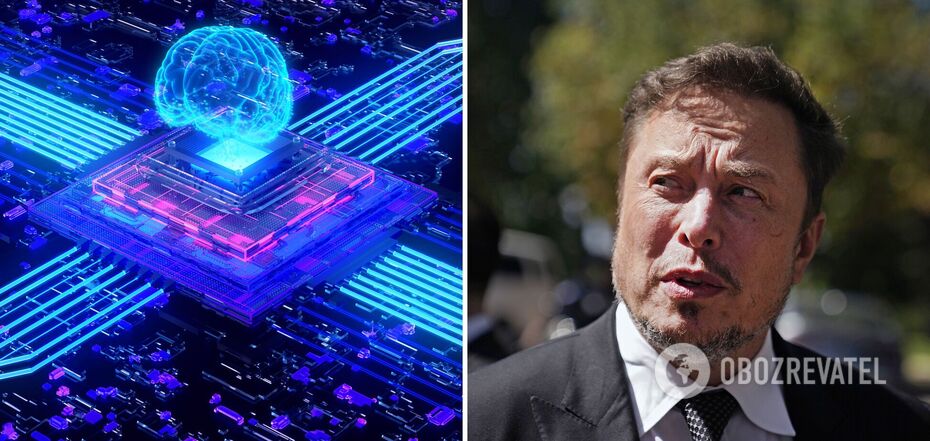News
There is no evidence: scientists explain what is wrong with the first human trial of Elon Musk's Neuralink chip
Billionaire Elon Musk's post that his company Neuralink has implanted its brain chip in the first human is currently the only evidence that such testing has begun at all. Scientists are concerned that the study was not announced in the specialized press, which is actually mandatory for further approval of the results.
This is stated in an article in the journal Nature. Neuralink intends to revolutionize the brain-computer interface (BCI) and allegedly implanted its own brain-reading device in a person for the first time at the end of January 2024.
Such chips record and decipher brain activity and can help a person with paralysis control a computer, prosthesis, wheelchair, or other device with the "power of thought." Musk's company is not the first to implant a chip in the human brain, nor is it the only one working on BCI. In particular, OBOZ.UA previously told about scientists from Switzerland who managed to put 40-year-old Dutchman Geert-Jan Oskam, who had been paralyzed for 28 years of his life, back on his feet thanks to a brain implant.
Nevertheless, researchers are interested in what exactly the Neuralink chip will be capable of.
For example, Mariska Vansteensel, a neuroscientist at the University Medical Center Utrecht in the Netherlands and president of the BCI International Society, said she hopes that Musk's company will be able to demonstrate the safety of the technology and that their chip effectively measures brain signals in both the short and long term.
At the same time, as the article says, the scientific community is disappointed by the lack of information and the fact that Musk's post is the only confirmation that the trial has actually begun.
According to Tim Denison, a neuroengineer at Oxford University in the UK, all the public information provided by the company is contained in an information brochure that invites people to participate in the trial. However, it does not contain scientifically important data: where exactly the implants will be performed, and what results will be evaluated during the study.
Scientists explain that studies of this type must be registered on ClinicalTrials.gov, which is overseen by the US National Institutes of Health. This requirement is imposed by universities, as well as by most specialized journals, which may refuse to publish research results without such registration.
This is not just a bureaucratic requirement as such registration forces the authors of the study not to violate ethical principles and protect people who voluntarily participate in clinical trials.
Nevertheless, experts expect that safety will be paramount at this stage. In particular, Denison urges Neuralink to prevent "any strokes, bleeding, vascular damage, or anything like that," and to monitor for infections in the long term.
Neuralink's brochure stated that volunteers would be followed for five years. It also stated that the study would evaluate the functionality of the device, which volunteers would use at least twice a week to control the computer and provide feedback on their experience.
Vansteensel also suggested that it is important to know how the electrodes will perform in the long term as it will be impossible to simply replace them after implantation.
Scientists are also interested in how BCI will work in non-laboratory conditions.
One of Neuralink's potential future customers also emphasized the importance of openness. Ian Burkhart, co-founder of the BCI Pioneers Coalition (USA), was paralyzed after breaking his neck in a diving accident and spent 7.5 years with a Blackrock chip implanted in his brain.
Although he is excited about what Neuralink can accomplish, he believes the company could have revealed more information rather than "making everyone speculate on it." In his opinion, this would be important for patients "who are looking forward to this type of technology being able to improve their lives."
Subscribe to OBOZ.UA on Telegram and Viber to keep up with the latest developments.



























